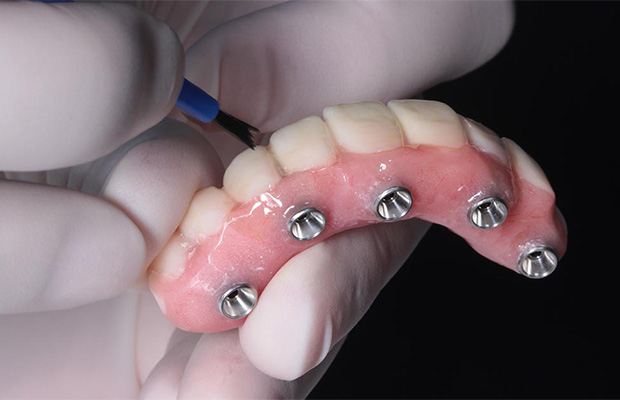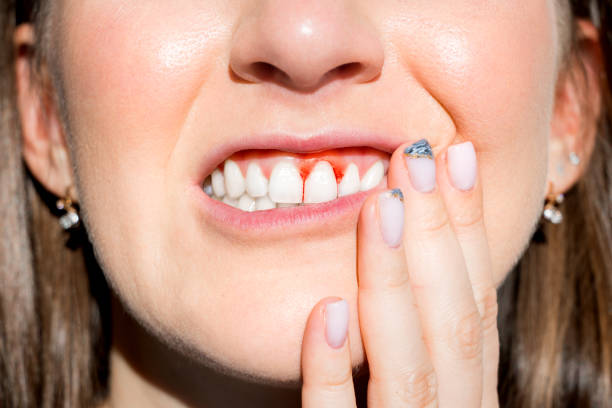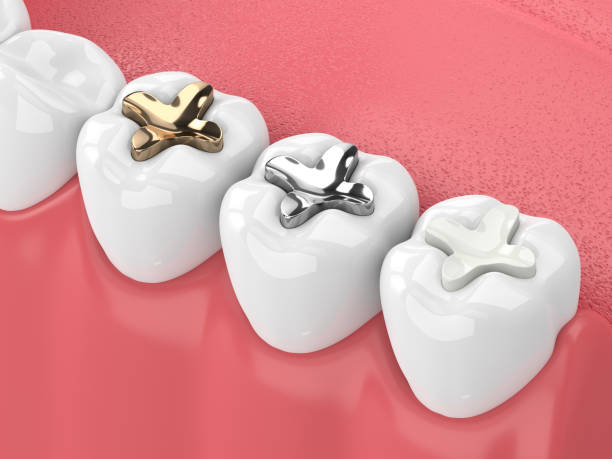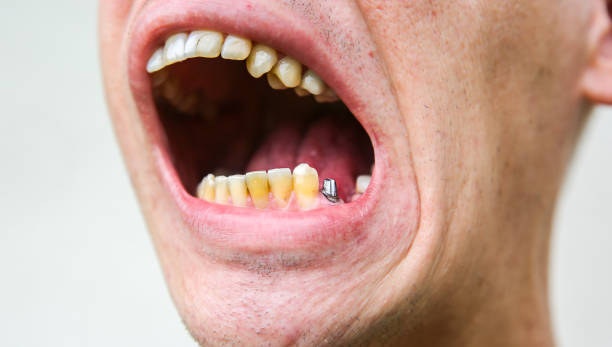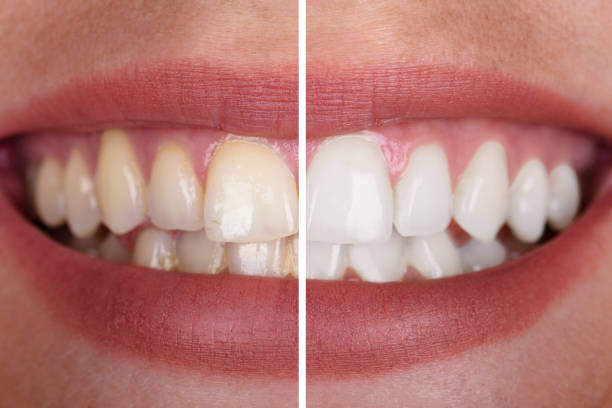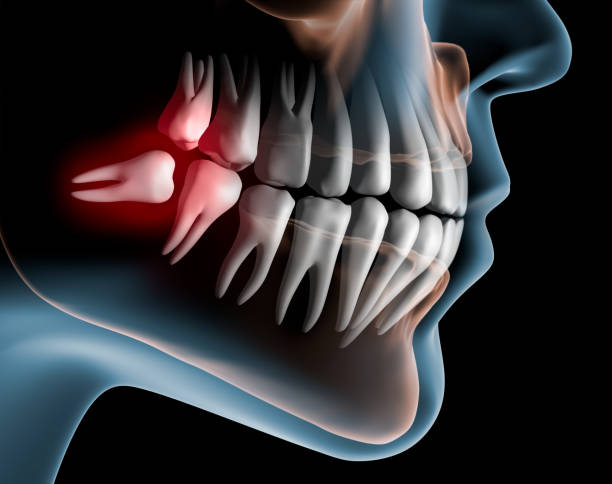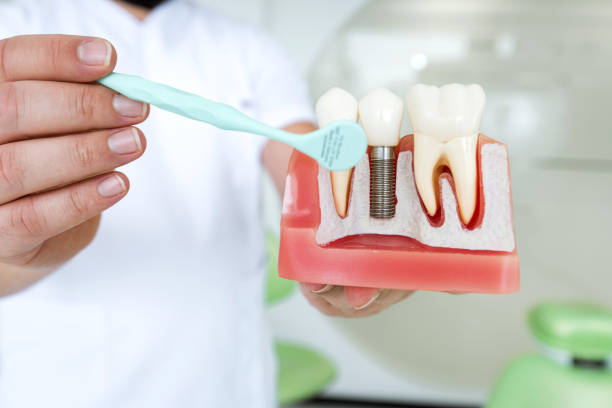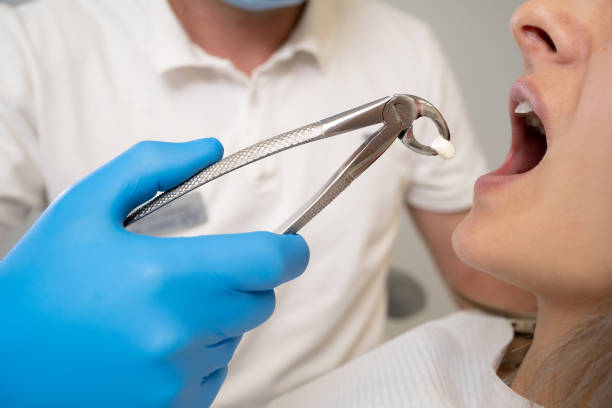The dental procedure that removes the decay from the pulp and root of your tooth is known as a root canal.
Your teeth are composed of an outer layer of enamel, a middle layer of dentin, and a soft interior core that extends into the root in your jawbone. The dental pulp, which is made up of nerves, blood vessels, and connective tissue, is found in the core.
You must pay close attention to root canal symptoms. Infections are sometimes brought on by bacteria getting into the tooth pulp. When this happens, root canal therapy is required to save the tooth.
Let’s take a look at some important points of root canal.
Table of Contents
What Is A Root Canal?
Performing a root canal is similar to using a miniature Roto-Rooter to remove decay and save the affected tooth.
During a root canal procedure, your dentist will:
- extract bacteria and decay from the tooth pulp, root, and nerve
- disinfect the area with antibiotics
- fill the empty roots
- seal the area to prevent new decay
Your general dentist or an endodontist, a specialist, can perform a root canal.
Your natural tooth is preserved after the root canal procedure and doesn’t decay any further. However, it makes the tooth more vulnerable. For this reason, a crown is frequently placed over a tooth that has undergone a root canal.

Root Canal Symptoms
Visit your dentist to find out for sure if you require a root canal. But there are a number of red flags to watch out for.
It’s critical to schedule an appointment with your dentist right away if you experience any of these signs. The sooner your tooth can be treated, the more likely it is that the results will be favorable.
1. Persistent Pain
One indication that you might require a root canal is persistent tooth pain. Your tooth pain may be constant or it may come and go but always come back.
Your tooth’s bone may be painfully sensitive deep inside. Or, you might experience referred pain in your other teeth, jaw, or face.
Other factors besides root canals can contribute to tooth pain. Some other possibilities include:
- gum disease
- a cavity
- referred pain from a sinus infection or another problem
- a damaged filling
- an impacted tooth that may be infected
Anytime you experience tooth pain, regardless of the cause, you should visit the dentist, especially if the pain lasts for a long time. An improved outcome is typically achieved with early diagnosis and treatment of tooth pain.
2. Sensitivity To Heat And Cold
When you consume warm food or a cup of coffee, does it hurt your tooth? If you consume ice cream or a glass of ice-cold water, your tooth may also feel sensitive.
The sensitivity may feel like a throbbing pain or a dull ache. If this pain lasts for a long time, even after you stop eating or drinking, you might require a root canal.
It may be a sign that the blood vessels and nerves in your tooth are infected or damaged if your tooth hurts when you consume hot or cold liquids.
3. Tooth Discoloration
Your tooth may turn discolored due to an infection in the pulp.
The roots of the tooth can become damaged and appear grayish-black due to trauma or the breakdown of internal tissue.
This discoloration is more noticeable in a front (anterior) tooth, according to general dentist Kenneth Rothschild, DDS, FAGD, PLLC, who has 40 years of experience.
“Tooth pulps can die when there’s an inadequate blood supply, thus signaling a possible need for a root canal,” Rothschild explained.
It’s a good idea to visit your dentist if you notice that a tooth is changing color, even though tooth discoloration can have other causes.
4. Swollen Gums
An issue that needs a root canal can be indicated by swollen gums close to the painful tooth. The swelling might fluctuate. When you touch it, it might be sensitive or it might not hurt.
“Swelling is caused by acidic waste products of dead pulp tissues, which may lead to swelling (edema) outside the root tip area,” explained Rothschild.
A tiny pimple on your gum might also be present. A gum boil, parulis, or abscess is what this is.
Because of the tooth infection, the pimple may ooze pus. Your breath may smell bad after this, and it may leave a bad taste in your mouth.
5. Pain When You Eat Or Touch The Tooth
The need for a root canal may be necessary if your tooth is sensitive to touch or when you eat. This could be a sign of severe tooth decay or nerve damage. This is especially true if the sensitivity doesn’t go away when you stop eating and lasts for a long time.
“A tooth with an infection may develop hypersensitivity in the ligament surrounding the root tip due to the pulp’s degeneration. The waste products from the dying pulp may irritate the ligament, causing pain from biting pressure,” said Rothschild.
6. A Chipped Or Cracked Tooth
Bacteria can grow in an injury to your tooth caused by an accident, a contact sport, or chewing on something hard, which can result in swelling and infection.
The nerves of the tooth may be damaged even if you hurt it but it doesn’t chip or crack. The nerve can become inflamed and cause pain and sensitivity, necessitating root canal therapy.
7. Tooth Mobility
Your tooth might feel looser when it’s infected.
“This can be caused by other factors besides pulpal necrosis (nerve death), but it can be a sign that a root canal is necessary,” said Rothschild. “Acidic waste products from nerve death can cause the bone surrounding a dying tooth’s root to soften and become mobile.”
If more than one tooth is loose, the mobility is probably due to something other than a problem that might require a root canal.
How T Prepare For A Root Canal?
Your healthcare provider can address any inquiries you may have before starting the root canal procedure. Here are a few things you can do to prepare for your root canal treatment:
- Take all medications as prescribed: A few days prior to your appointment, particularly if there is a significant amount of infection present, you might be prescribed antibiotics or anti-inflammatory drugs.
- Don’t smoke: The healing process of your body is hampered by tobacco products. The few days prior to your root canal appointment, try to cut out smoking completely if you can, and avoid doing so altogether if you can.
- Eat a healthy meal: It’s a good idea to eat before your appointment because the local anesthesia used during root canal therapy will cause your mouth to be numb for a few hours.
What Can You Do After A Root Canal?
After your root canal, it’s crucial to carefully plan your meals. Avoid chewing and crunching excessively. Eggs scrambled, soups with broth, and smoothies are all excellent choices.
If you smoke, you should refrain from doing so immediately following the procedure. Your ability to heal could be hampered by foreign chemicals.
You should take a few days off from exercise after the procedure, just as you should with any surgery. An achy, bleeding feeling can result from exercising too soon. However, leisurely strolls are recommended.
After your surgery, make sure to get enough rest. Get enough rest and avoid standing up too much. Make sure you have enough painkillers on hand that you won’t need to leave your house.
On the first one to two days following surgery, some swelling and pain are typical. However, you should get in touch with your dentist if pain continues.
Additionally, you should inform your dentist if you have hives, rashes, or a reduced response to over-the-counter painkillers. You should also inform them if your temporary crown is giving you pain.
How To Prevent A Root Canal?
It’s crucial to practice the same dental hygiene practices that guard against cavities and other tooth issues if you want to avoid getting a root canal. To keep your teeth healthy, try to get into the habit of following these steps:
- At the very least twice daily, brush your teeth.
- Maintain daily oral hygiene by flossing.
- Use a fluoride rinse or a fluoride toothpaste.
- Visit the dentist every six months for a checkup.
- At least once a year, visit the dentist to have your teeth professionally cleaned.
- Try to cut back on your consumption of refined carbohydrates and sugary foods. It’s common for these foods to stick to your teeth. Try to brush your teeth or rinse your mouth out shortly after consuming sugary foods.
Does A Root Canal Hurt?
After having a root canal, many people are concerned about experiencing tooth pain. However, the majority of patients experience immediate relief after treatment because the infection’s source is eliminated during the procedure. Call your healthcare provider as soon as you feel throbbing pain following a root canal.
Read More: Does A Root Canal Hurt?
FAQs
Can I Eat After Having A Root Canal?
Yes, but it would be best to wait until the numbness subsides. The anesthesia’s effects typically last a few hours.
For the first few days, stick to softer foods like pasta, mashed potatoes, and yogurt. As your level of comfort increases, introduce solid foods.
Additionally, you should avoid biting or chewing with the treated tooth. Prior to receiving your permanent dental restoration, try to chew with the opposite side of the mouth.
Can I Drive After Having A Root Canal?
You may be able to drive yourself to and from your appointment if you received local anesthesia or nitrous oxide during your procedure. Those who opt for oral or IV sedation will require a friend or relative to drive them home.
Can I Smoke After Having A Root Canal?
Smoking interferes with healing and increases the likelihood that you’ll need additional dental work in the future, so it isn’t advised.
How Long Do Root Canal Treatments Have An Impact?
Even though you shouldn’t experience severe pain following a root canal, you might experience sensitivity for the first few days. With the help of prescription or over-the-counter painkillers, these symptoms can be successfully managed as they are normal. The majority of the time, side effects disappear after one to two weeks.
Who Should Perform My Root Canal Procedure?
A general dentist or an endodontist (a specialist in root canals) performs root canal therapy. Because they have fewer roots, teeth near the front of the mouth are frequently treatable by general dentists. You might be referred to an endodontist if you require root canal therapy on a tooth with multiple roots or if your case is complicated.
What To Expect After A Root Canal?
Even though you shouldn’t experience severe pain following a root canal, you might experience sensitivity for the first few days. With the help of prescription or over-the-counter painkillers, these symptoms can be successfully managed as they are normal. The majority of the time, side effects disappear after one to two weeks.
The Bottom Line
Unbelievably, millions of root canal procedures are carried out annually. If you’ve got root canal pain, there are top-notch professionals available to help you.
Although the term “root canal” seems to provoke fear in many people, the dental procedure doesn’t involve any special pain. Nearly everyone feels better right away following treatment.


